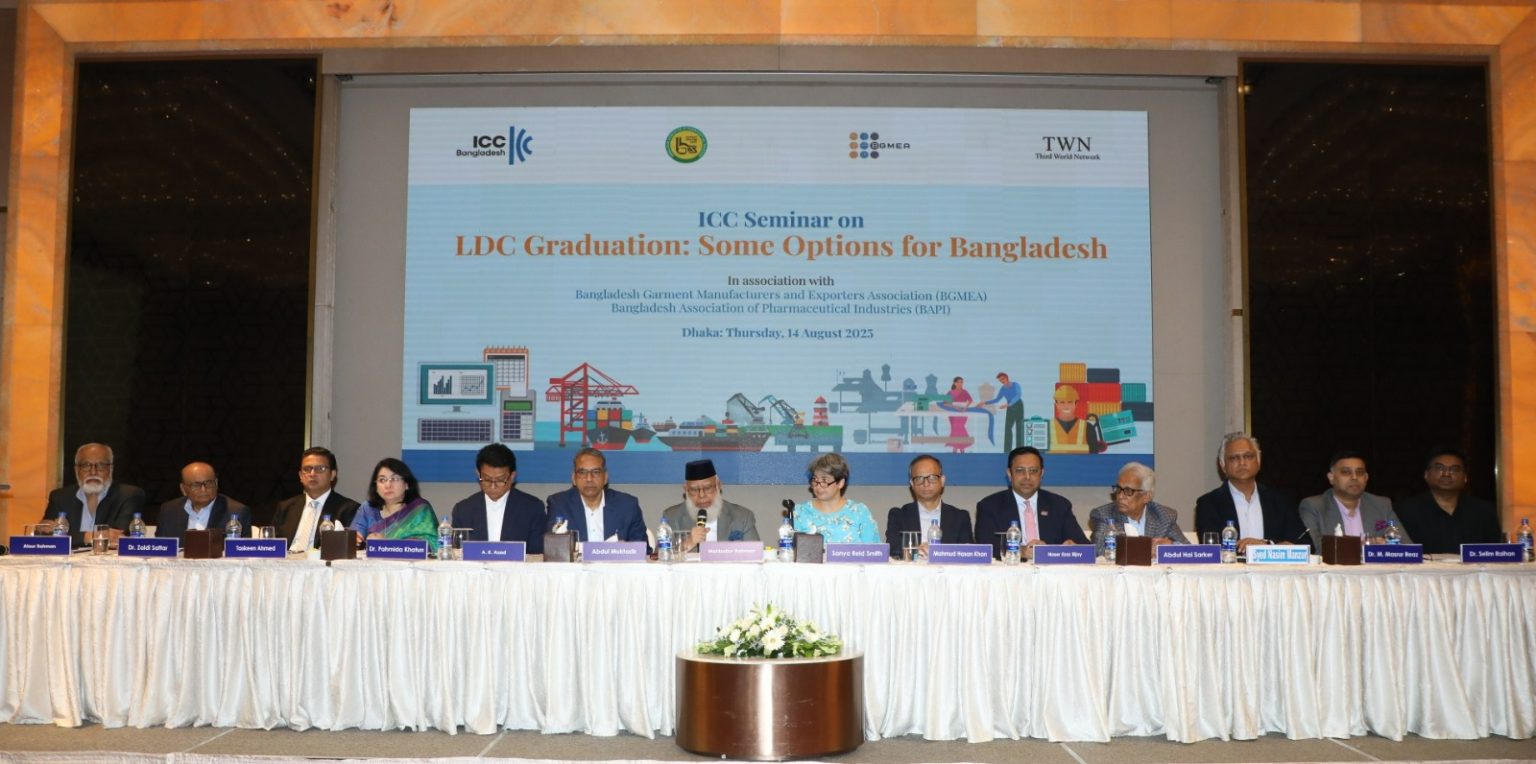Business leaders and trade experts have urged the government to postpone Bangladesh’s graduation from the United Nations’ Least Developed Country (LDC) category, scheduled for 24 November 2026, by at least three to five years to prevent export losses, higher medicine prices and declining investor confidence.
At a seminar titled Graduation from LDC: Some Options for Bangladesh at a city hotel on Thursday, International Chamber of Commerce, Bangladesh President Mahbubur Rahman said the business community supports graduation in principle but the country needs more time to prepare.
“Political and economic uncertainty since August last year and the run-up to the February national election have shaken investor sentiment. Foreign direct investment fell 13 per cent in 2024 compared to 2023,” he said.
He outlined five priorities for seeking an extension—securing better trade negotiations, diversifying exports beyond ready-made garments, building skilled manpower, attracting foreign investment and strengthening institutional capacity with climate resilience. Rahman warned that post-graduation tariffs could rise by 12 per cent and exports might fall by 6 to 14 per cent without trade preferences such as the Generalised System of Preferences (GSP).
Former Federation of Bangladesh Chambers of Commerce and Industry (FBCCI) president and Ha-Meem Group Managing Director AK Azad described immediate graduation as “suicidal” for the economy. “Defaulted loans stand at Tk 5.30 lakh crore, with around 1,200 factories seeking loan rescheduling. Our economy is still fragile. Tariffs in Europe, Canada and Japan will rise steeply. Foreign investment will not come if gas and infrastructure problems persist,” he said.
Third World Network Legal Adviser and Researcher Sanya Reid Smith highlighted trade and intellectual property challenges following graduation. She said the European Union, which accounts for 48 per cent of Bangladesh’s exports, currently allows 93 per cent tariff-free access. After the three-year transition, tariffs could rise to 9.6 per cent under developing country preferences or 12 per cent at the general rate from December 2029. Canada’s tariffs on most garments could jump to 16–18 per cent, and Japan’s to 7.4–12.8 per cent.
Smith warned that compliance with World Trade Organization (WTO) intellectual property rules would require 20-year patents on new medicines and 10-year industrial design monopolies, pushing insulin prices up 11 times and HIV/AIDS treatment costs over 200 times compared to generics, with severe consequences for patient access.
She cited precedents of other LDCs securing deferrals—Maldives by eight years, Vanuatu by 20, and Samoa and Equatorial Guinea by five. Bangladesh has already moved its graduation date from 2024 to 2026 and could negotiate further delay, she said.
The seminar was attended by Bangladesh Garment Manufacturers and Exporters Association (BGMEA) President Mahmud Hasan Khan, Leather Goods and Footwear Manufacturers and Exporters Association President Syed Nasim Manzur, Bangladesh Association of Banks Chairman Abdul Hai Sarker, Standard Chartered Bank Bangladesh CEO Naser Ezaz Bijoy, Policy Research Institute Chairman Zaidi Sattar, Centre for Policy Dialogue Executive Director Fahmida Khatun, South Asian Network on Economic Modeling Executive Director Selim Raihan, and Policy Exchange Bangladesh Chairman Masrur Reaz.
Participants urged urgent diplomatic engagement with the United Nations and key trade partners, warning that premature graduation without safeguards could erode competitiveness and weaken economic resilience.


